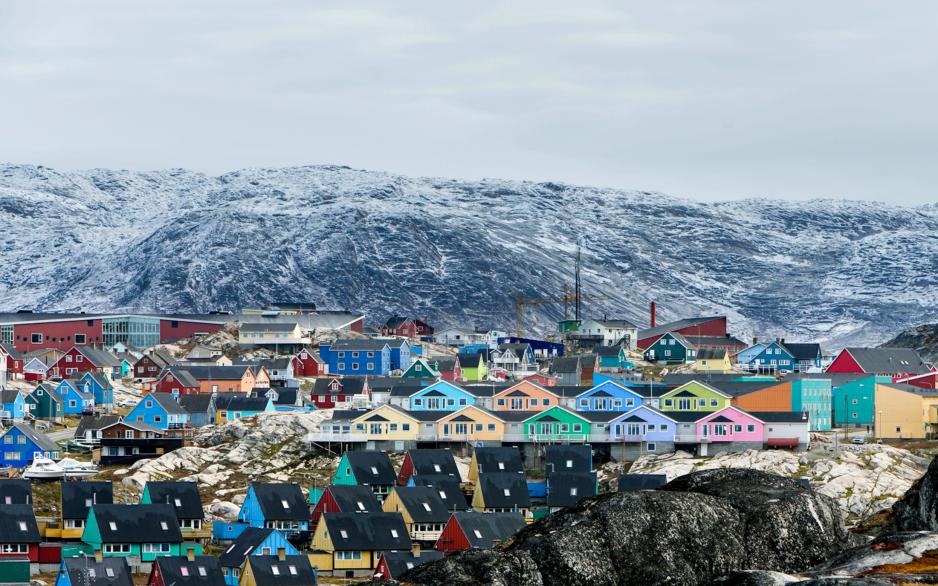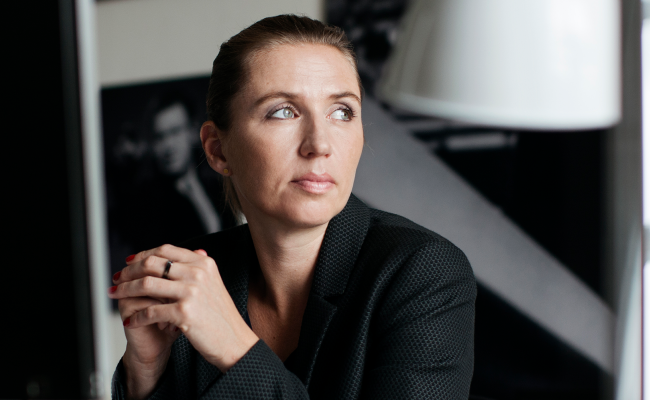Debate: Uniting For Women's Right to Bodily Autonomy: It is About Decolonization

Illusat, Greenland. The spiral case (alternatively coil campaign, coil case or IUD case) is an ongoing investigation into a birth control campaign by the Danish government in Greenland, primarily during the 1960s and 1970s. (Foto: Lisa Ouellette)
This is an opinion piece written by an external contributor. The article expresses the writer's opinions. High North News is not responsible for the content in external links.
This year, International Women's Day has a crucial significance. It has never been more important that we all stand behind the women's movement for the right to bodily autonomy and the right to a life in dignity. In the Arctic, this is about decolonization.
Nearly two years ago, a podcast series on the national Danish radio DR revealed that a large number of Greenlandic women and girls had been fitted with IUD‘s during the so-called “IUD-campaign”.
According to the journalists, as many as 4500 IUD’s were inserted. This is equivalent to half of the women and girls in fertile age at the time in Greenland.
The podcast also revealed that the “campaign” was a Danish policy conducted in the 1960’s and 70’s to prevent the population in Greenland from growing too much, and that some girls were down to the age of 14. Later testimonies include girls at the age of 12.
The Chief Medical Officer of Greenland has recently confirmed the high numbers, having registered 3821 cases by 1970, and noting that a larger number is expected as proper registration ended in the early 1970’s.
We are at a historical crossroad
Testimonies are now collected through an investigation initiated by the governments of Greenland and Denmark, and from women who have stood forward in media, we know that many girls and women had the IUD’s inserted without their knowledge or consent, or the consent of their parents.
Women’s rights are related to collective rights
It is clear, that we are at a historical crossroad and the need for a continued, strong women's rights movement has never been clearer.
The IUD cases, and the cases concerning other forms of contraception, as well as the cases of forced sterilizations of Indigenous women in Canada, stand as major and serious examples of why we must not dampen or abandon the struggle for women's rights.
Nor should we misunderstand other equality struggles as being more important or replacing the women's rights movement. These cases also stand as major and important examples of why women’s rights and the right to bodily autonomy is also about decolonization.
Depriving women of their fertility is an extraordinary violation. Depriving so many women in a society of their fertility is a violation of the collective rights of a people, and in the human rights investigation, ICC has strongly urged that investigating whether this is an international crime is included.
Also read (the article continues)
Earlier this month, 143 women announced that they are suing the Danish state in connection with the IUD cases. With this, three major tracks are in motion.
Firstly, investigations are carried out by various entities, secondly, the judicial system is at play by the state being sued, and thirdly, the ICC and others continuously report to the UN on the human rights violations to ensure focus and action through established international human rights mechanisms.
The IUD cases are a clear reminder of why we must continue and even more strongly unite in the fight for women's right over their own bodies and women's right to a life in dignity. ICC fully supports the many women who stand up and take the lead in the fight for justice in the IUD cases.
They are individually affected, and it takes individual courage to become the faces of these cases. Their courage and their actions have historical significance for our entire society and for our collective rights as a people.
ICC also stands behind the many women who remain silent and who may have experienced the same violations.
Most recently, ICC has reported on the IUD cases at the UN Committee on the Elimination of Racial Discrimination's regional consultation in connection with drafting of recommendations on discrimination in access to the right to health.
Human rights aspects will be investigated
The Greenlandic-Danish investigation will not include the human rights aspects of the “IUD-campaign” and cases of other contraceptives, but the Government of Greenland is launching their own investigation into the human rights aspects of the IUD cases, as ICC has recommended.
With the knowledge we have, there is not an ounce of doubt that these practices are gross violations of human rights.
The Danish Minister of Health refuses to investigate the human rights aspects
We are therefore left wondering why the Danish government does not clearly recognize that these are human rights issues that should also be addressed.
In a response to the Danish Parliament, the Danish Minister of Health refuses to investigate the human rights aspects on the grounds that they want to separate "the professional and objective basis of the independent investigation from an assessment of potential human rights violations".
Human rights are also law, and human rights are also professional. Moreover, talking about "potential" violations is, at this point, seriously off the mark.
We will continue to report and issue recommendations to the Government of Greenland, the UN and other bodies and we call on international support for the women who raise their voice, and those who remain silent.
Unfortunately, Inuit and Greenlanders are not the only peoples where women's reproductive health has been used as a tool in a colonialist act, and this is a core issue related to Indigenous Peoples' rights.
We would like to remind everyone that Inuit are not alone, and we hope that women and others affected in Greenland and beyond will find strength in the fact that women and Indigenous Peoples from many other parts of the world are standing with us at this time.
We feel this clearly when we are out advocating for the rights of Indigenous Peoples.
It is time for the Arctic and Nordic states to look inwards and understand the consequences of colonization, and especially consequences of policies aimed at women. ICC thanks the many women who have come forward, and we stand behind everyone who is affected.


